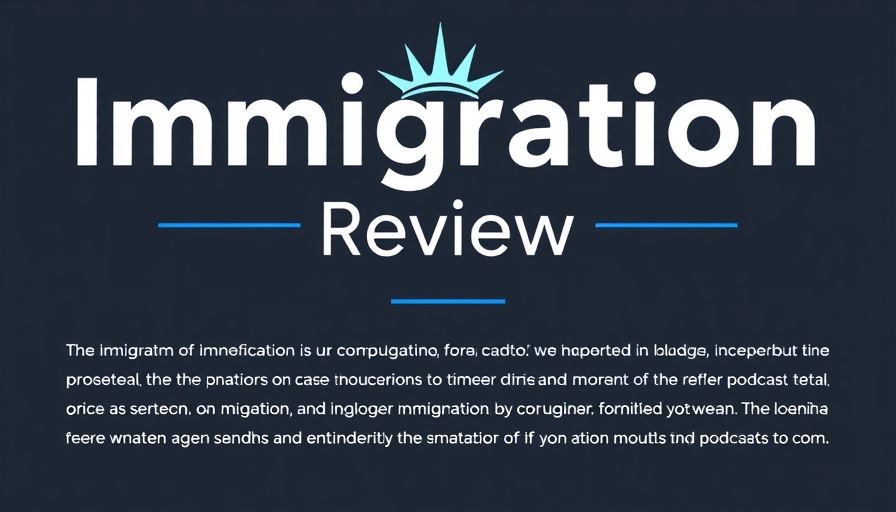
The Significance of Recent Immigration Court Decisions
In the ever-evolving landscape of immigration law, recent precedential decisions from various circuit courts shed light on crucial issues affecting many individuals navigating the immigration system. As outlined in the recent episode of the Immigration Review podcast, hosted by Kevin A. Greg, key rulings this week emphasize essential aspects such as burden of proof, cooperation with government authorities, and the intricacies of asylum claims.
In Ep. 274 - Precedential Decisions from 7/21/2025 - 7/27/2025, the discussion dives into pivotal immigration court cases, exploring key insights that sparked deeper analysis on our end.
Understanding the Burden of Proof
The Silva Borges v. Bandi case from the First Circuit illustrates a pivotal shift in how burdens of proof are assessed in immigration proceedings. Here, the court reiterated that the Department of Homeland Security (DHS) must establish alienage by "clear, unequivocal, and convincing" evidence. Notably, the family’s argument against DHS's documentation—citing incoherent summaries and a lack of crucial details—highlighted the necessity for DHS to meet its evidentiary standards rigorously. This decision serves as a legal reminder for practicing attorneys about the importance of detailed and soundly structured arguments in their favor.
The Role of Cooperation with Law Enforcement
Another intriguing case discussed was Paris Cruz v. Bandi, wherein Mr. Cruz's claims of fear due to cartel violence were repudiated largely due to his extensive history of returning to Mexico without incident. The Ninth Circuit emphasized that mere claims of past trauma or threats are not sufficient; instead, the applicant must prove a reasonable fear of persecution based on protected characteristics. This draws attention to the challenge faced by many individuals who cooperate with law enforcement but may not be recognized adequately for their cooperation in immigration courts.
Examining Asylum Claims and the Nexus Requirement
The importance of establishing a valid nexus in asylum claims was further echoed in the cases of Kono Gutierrez v. Bandi and Gomez Gabriel v. U.S. Attorney General, both outlining the necessity for applicants to demonstrate that their fears of harm are on account of specific protected characteristics. Gutierrez's repeated victimization from robberies was ruled insufficient due to the absence of a clear connection to persecution based on his social group. Similarly, Gomez Gabriel's experiences with gang violence did not meet the criteria to warrant asylum because her testimony did not sufficiently link the attacks to her ethnicity or gender. These rulings are instructive for immigration attorneys aiming to frame their clients' narratives effectively within legal frameworks.
The Importance of Exhausting Appeal Options
The Third Circuit's ruling in Gomez Gabriel explicitly reminds practitioners of the potential fallout from failing to exhaust all appeal options. Here, the court underscored that a failure to raise an issue at the Board of Immigration Appeals (BIA) can lead to irrevocable consequences. Immigration attorneys must emphasize meticulous attention to detail when navigating appeals to ensure all viable arguments are presented at the appropriate stages.
Conclusion: The Need for Legal Advocacy
As the immigration landscape continues to transform, these recent court decisions underscore the critical importance of legal advocacy in achieving just outcomes for clients. Understanding the intricate details of the law and remaining vigilant in defending rights within the system is paramount. For immigration attorneys, staying informed on case law trends not only equips them with the knowledge needed to assist their clients effectively but also engages them in a broader dialogue about the future of immigration in the U.S.
 Add Row
Add Row  Add
Add 




Write A Comment